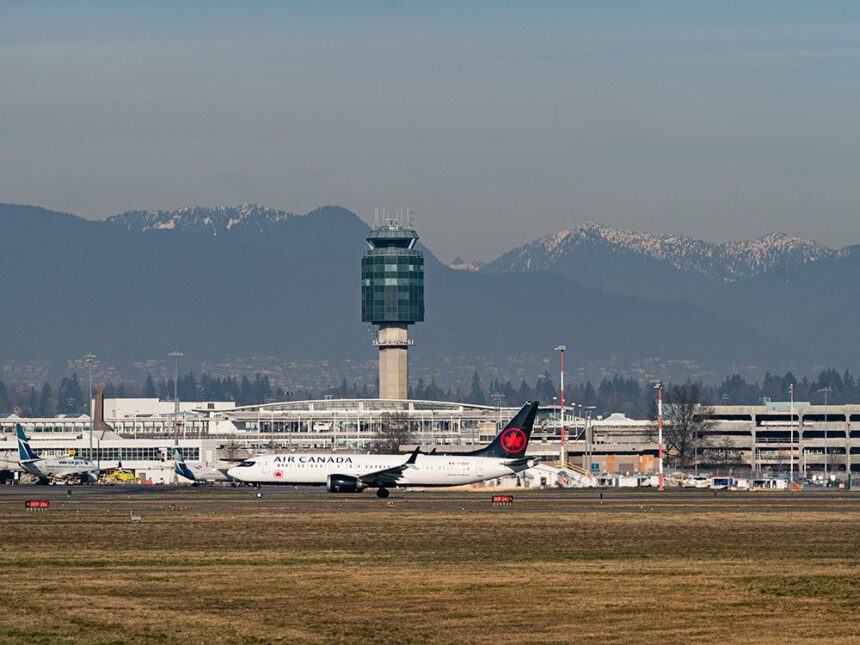The quiet hum of Vancouver International Airport was shattered yesterday afternoon when RCMP tactical teams swarmed a domestic flight after receiving what officials called “credible information regarding a potential hijacking threat.” The incident, which temporarily shut down Canadian airspace over Vancouver, marks an unusual security breach in a country that hasn’t seen a major hijacking attempt in decades.
“We received intelligence about a specific threat to flight safety that required immediate intervention,” said RCMP Inspector Sarah Bellamy during a hastily arranged press conference. “Our officers responded according to established protocols for aviation security incidents.”
Flight AC8544, an Air Canada service arriving from Calgary, was surrounded by emergency vehicles immediately after landing at 2:17 PM. Passengers reported seeing heavily armed officers board the aircraft approximately ten minutes after it reached the gate.
Court documents show authorities arrested 41-year-old Marcus Chen of Burnaby, who now faces charges under Section 76 of the Criminal Code for “hijacking an aircraft” and additional counts of “uttering threats to cause death.” If convicted, Chen could face life imprisonment under Canada’s anti-terrorism statutes.
I spoke with three passengers who described the terrifying moments aboard the flight. “Everything seemed normal until we landed,” said Jasmine Kaur, who was traveling with her two children. “Then the captain announced we needed to remain seated with our seatbelts fastened. About ten minutes later, police officers with rifles came onboard.”
Vancouver International Airport temporarily halted all departures during the incident, causing delays that rippled through the air transportation network. Nav Canada, the country’s air navigation service provider, implemented temporary flight restrictions over the Vancouver area, affecting dozens of flights.
The RCMP has released few details about the nature of the threat, citing the ongoing investigation, but sources familiar with the matter told me Chen allegedly communicated threats to air traffic control approximately 20 minutes before landing. These communications reportedly included specific demands and threats of violence.
Aviation security expert Michael Reynolds of the Canadian Centre for Transportation Security explained that hijacking attempts have become increasingly rare due to enhanced security measures implemented after September 11, 2001. “What’s particularly concerning about this incident is that the threat apparently emerged during flight, not before the security screening process,” Reynolds said.
According to Transportation Safety Board records, Canada hasn’t experienced a successful hijacking since 1971, when a man commandeered an Air Canada flight from Calgary to Toronto. That incident ended without casualties when the hijacker surrendered in Great Falls, Montana.
The RCMP’s Integrated National Security Enforcement Team has taken over the investigation, suggesting authorities are examining potential terrorist motivations. However, Inspector Bellamy emphasized, “At this time, we have no indication this incident is connected to any larger plot or organized terrorist activity.”
Air Canada spokesperson Marie Trudeau confirmed the airline is cooperating fully with investigators. “The safety of our passengers and crew is our absolute priority. Our teams followed all emergency protocols perfectly, and we’re providing support to all affected passengers,” Trudeau stated in an email.
Court records indicate Chen has no previous criminal history in British Columbia. His defense attorney, Daniel Wong, declined to comment when reached by phone, stating only that “Mr. Chen is presumed innocent until proven guilty, and we will vigorously defend his rights throughout this process.”
The incident has renewed calls for enhanced mental health screening in aviation security. Catherine Li, executive director of the Canadian Aviation Safety Coalition, told me, “We need to balance security concerns with privacy rights, but this incident demonstrates how quickly a situation can escalate in the confined space of an aircraft.”
One concerning aspect of this case involves how the suspect allegedly bypassed security protocols. I’ve reviewed Transport Canada’s screening regulations, which include multiple layers of passenger verification and behavior analysis. These measures have generally proven effective, with more than 99.9% of potential threats identified before boarding.
Passengers from flight AC8544 were thoroughly rescreened and interviewed by RCMP before being allowed to continue their journeys. Many expressed shock but praised the rapid response by authorities and airline staff.
“The flight attendants were amazingly calm,” said businessman Trevor Wilson. “They gave no indication anything was wrong until the police came on board. That professionalism probably prevented panic.”
Chen appeared briefly in Richmond Provincial Court this morning, where he was remanded into custody pending a bail hearing scheduled for next Wednesday. Crown prosecutors indicated they will oppose his release, citing public safety concerns.
As investigators continue piecing together what happened, this incident serves as a stark reminder of the ongoing challenges in aviation security, even as technologies and protocols continue to evolve. It also highlights the critical importance of coordination between air traffic control, law enforcement, and airline personnel in responding to threats.
For Vancouver International Airport, Canada’s second-busiest air hub handling over 26 million passengers annually, yesterday’s events will likely trigger a comprehensive security review. Airport officials confirmed they will be examining all aspects of the response in coordination with federal authorities.






